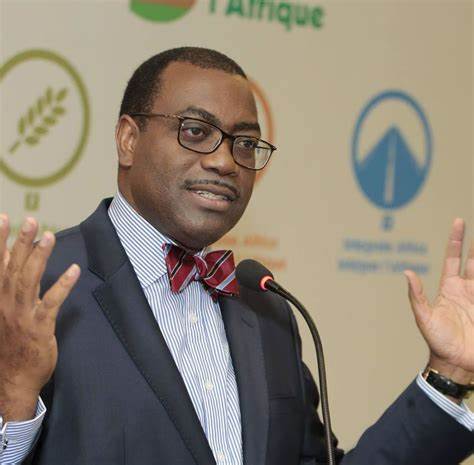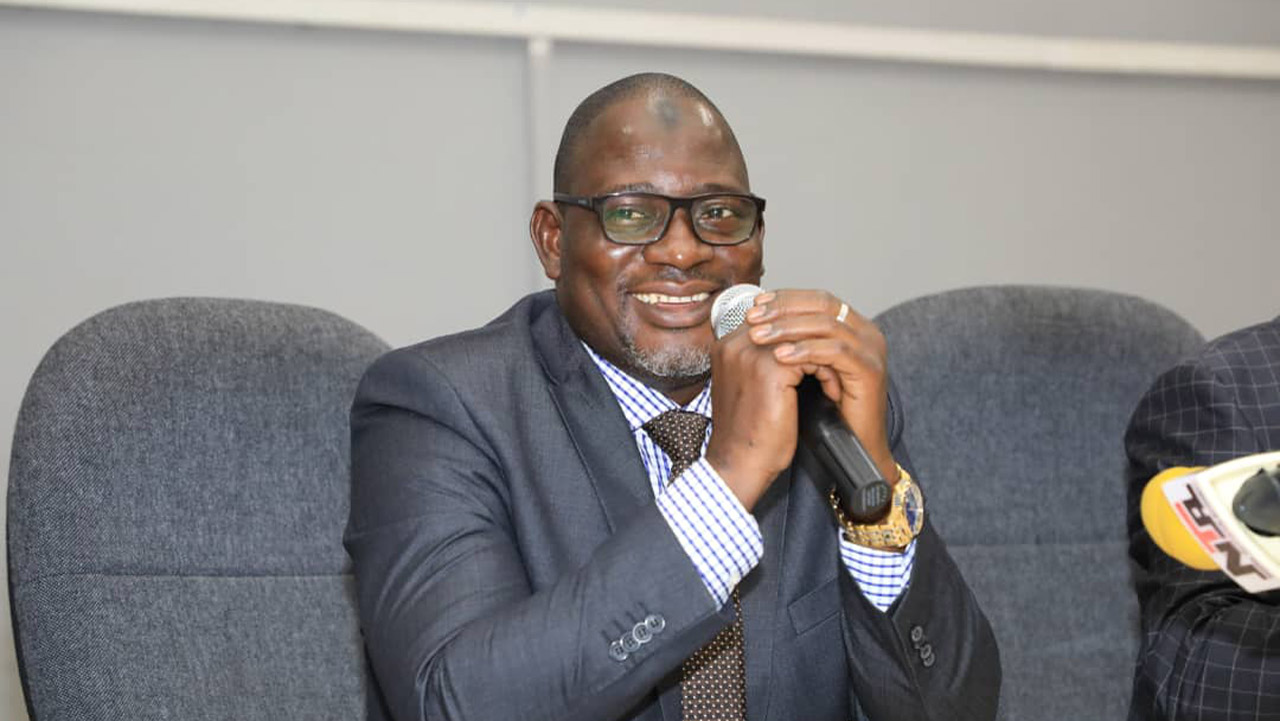
The Executive Chairman, Federal Inland Revenue Service, Tunde Fowler (middle) at MSME clinic recently in Kano state
SPECIAL REPORT: How Fowler’s FIRS is Stimulating Nigerian Economy Through Empowering 37 Million MSMEs
There is a correlation between the growth of economic activities and increased tax revenue in any economy. When the former is lacking, the later will be affected negatively.
This is the philosophy driving the current effort by Tunde Fowler, the Executive Chairman of Federal Inland Revenue Service (FIRS) to sensitise micro, small and medium business owners across the country. FIRS, sometimes in collaborations with other institutions of government is touring round the country, organising workshops and teaching the business owners how to grow their businesses, do their businesses profitably and pay correct taxes from their income.
Available statistics from a recent survey by the National Bureau of Statistics (NBS) in partnership with the Small and Medium Scale Enterprises Development Agency of Nigeria (SMEDAN) indicate that there are over 37 million MSMEs operating in the country as follows: Micro (36,994,578) Small (68,168) Medium (4,670) Total 37,067,419. This means that the effort of FIRS is to cover more than 37 million MSMEs across the country with the sensitisation.
Currently, the NBS statistics said that over 59million Nigerians are employed by MSMEs and it accounts for over 84% of the total national labour force. MSMEs Contribution to National Gross Domestic Product (GDP) as at 2016 stood at 48.5% with a 7.3% contribution to total national export.

File: Economy Fact and Figures
FIRS’ permutation is that if the MSMEs are properly sensitised and harnessed, their yield into the economy could multiply a thousand folds and the result will be burgeoning Nigerian economy.
This has informed FIRS touring of many states across the country, sensitising the MSMEs. Fowler believes that it is not enough to go after taxpayers without ‘wetting the ground’ to enable business owners do profitable businesses and earn income. Of course, it is from their incomes that they would pay taxes.
And unexpectedly, these efforts have affected revenue collection positively in 2018. For instance, from January to August, 2018, total collection had crossed N3.5 trillion and this is representing an increase of more than N1trillion over the collection of N2.5 trillion same period in 2017, approximately 42.9 % increase.

FIRS Collection figure: This Day newspaper, September 7, 2018. p. 10
“We believe that the Micro, Small and Medium Enterprises (MSMEs) have the capacity to grow the economy and provide jobs for the teeming population. That is the reason for all FIRS and Federal Government’s interventions in form of taxpayers’ education and workshops”, Fowler said in one of the events in Kano recently.

Stimulating the economy: The Executive Chairman of FIRS (middle) with FIRS participants at Katsina MSME clinic recently
In some public for a on economy, stakeholders had recommended that ‘there would be no taxation without businesses’. In other words, they meant that the government needed to provide enabling environment to encourage businesses to thrive. That is the call the government has answered.
Following its relevance and successes already achieved, other institutions of government and private bodies like the bankers’ unions and state governments are keying into MSMEs sensitisation programmes.
The FIRS, under the watch of Fowler, has toured various states of the country organising workshops ‘clinics’ which are aimed at stimulating the economy.
The FIRS believes that when properly harnessed, the MSMEs sub-sector of Nigeria, which is currently over 37 million in number, will be the springboard for Nigeria’s economic growth.
During a recent programme in Kano, the FIRS, in collaboration with the Small and Medium Enterprises Development Agency of Nigeria (SMEDAN) and Joint Tax Board (JTB) carried out awareness creation and sensitization on small and medium enterprises on the importance and procedure for payment of taxes.
Fowler said that the sensitisation is just a part of programmes rolled out by FIRS, JTB and SMEDAN to harness the Micro, Small and Medium Scale Enterprises and make them viable.
JTB Secretary, Oseni Salawe Elamah, who represented Fowler, at the Kano event said that all over the world, MSMEs are seen as the medium for accelerating the attainment of broad socio-economic objectives, especially for emerging economies. These, he said include poverty reduction, employment generation, wealth creation, income redistribution, trade equilibrium, entrepreneurial diversity, and revenue generation, among others.
During a similar event in Lagos, Fowler said that the FIRS has taken various steps to support the MSMEs such as supporting the revision of the National Tax Policy (NTP) to reflect the realities of the economy; making tax payment easier as taxpayers can now pay their taxes online or at the FIRS office closer to them and creating the FIRS FEETT.
Fowler told the stakeholders that MSMEs are the engine of economic growth, stating that Nigerian economy needs the wellbeing and improvement of the MSMEs to grow, hence the need for the sensitisation.
Represented by the Director, Federal Engagement and Enlightenment Tax Teams (FEETT), Mr. Kunle Oseni, Fowler said: “The MSMEs are recognised as the engine of economic growth and development in the developing economies with the capacity to effect wealth and income distribution as well as creating jobs even in stagnant economies.
The essence of this programme is to ensure that the process of tax payment is made less onerous”, he said.
The meeting which took place at the Lagos Chamber of Commerce and Industry, Conference and Exhibition Centre, Plot 10 Nurudin, Olowo Popo Drive, Behind MKO Abiola, Gardons, Alausa, Ikeja attracted key players in the MSME subsector who urged the FIRS, JTB and SMEDAN to do more of the workshop at the various local governments of the country.
The MSMEs are largely unincorporated entities operating as enterprises with registered business names existing within the ambit of the informal sector. They play critical and significant roles via several economic pathways that go well beyond job creation and support growth that contribute significantly to improved living standards and act as a catalyst in promoting local capital formation.
The workshops were also meant to help the MSMEs access their rights from the government. Though they are numerous incentives and support facilities available to MSMEs in Nigeria, (eg: Federal Government Special Intervention Fund for the MSMEs, Bank of Industry and Central Bank of Nigeria Intervention Fund, etc) access by MSMEs to such incentives and facilities have been hampered by some bottlenecks. Also, lack of understanding of some of his government funds, absence of supportive environment and poor access to finance have reduced the competitiveness of MSMEs in Nigeria.
This sensitization programme is aimed at sensitizing the MSMEs on the officially approved taxes and procedures for paying them. Fortunately, the FIRS and the JTB have stream-lined the procedures and enhanced the ease of payment of these taxes.
The MSMEs when harnessed will play a role in job creation and serve as a tool for economic development.
Fowler said the impact that MSMEs have on the economy of Nigeria is better appreciated when we look at some of the contributions they make to the national economy.
Small and Medium Enterprises require education and enlightenment on extant tax laws especially those directly related to their operations, such as Personal Income Tax, Value Added Tax and Withholding Tax. Operators, he added, also require accurate information in relation to changes and emerging trends in the application and administration of various tax laws.
Fowler said: “This is especially more so given the fact that the country’s tax administration system is currently on the threshold of a paradigm change in synergy with global best practice and emerging trends in information communications technology.
“With the consolidation of the nation’s taxpayer database and expected commencement of the Automatic Exchange of Information with other countries of the world, it is essential that operators in this sector adapt to these trends if they are to become serious players in the global market place and to avoid being caught in a paradigm paralysis”, he said.

Vice President Yemi Osinbajo at the launch of Oyo State MSME clinic recently
The MSMEs clinics have attracted the attention of key players in the economy, including Vice President, Prof. Yemi Osinbajo who has launched the idea in various states of the country. In Kano, Osinbajo reiterated Federal Government’s plan to support small businesses and noted that the MSMEs Clinics is to facilitate easy interactions between small businesses and regulatory agencies.
At a similar gathering of small scale businesses, industry and stakeholders across the public and private sectors involved in developing micro, small and medium scale in Katsina recently, Osinbajo said the government is ready to work with business owners.
Osinbajo said that the MSMEs Clinics that is now going round major cities in the country was designed to give small businesses the opportunity “to meet with the industry regulators, to talk to them and to hear their problems”. He added that he was so excited to see not only business men but women who are focused and serious about their businesses.
The acting president explained that the idea of the MSMES clinics which he has being personally attending is part of the efforts of the Buhari administration to close the gap between MSMEs and relevant Federal Government regulatory agencies like NAFDAC, CAC, SON, BOI, FIRS and others and ensure that those agencies become facilitators of businesses not obstacles to business development.

Vice President Yemi Osinbajo at MSME clinic in Kano, recently
Meanwhile, Special Adviser to Vice President Osinbajo on Micro, Small and Medium Enterprises (MSMEs), Mr. Tola Johnson, said the Federal Government has started implementing plans to empower 360,000 MSMEs annually. Johnson, who is also a member of the recently inaugurated National MSMEs Council, made the remark in Abuja. “The target of the MSMEs clinics is to try and affect positively, the lives of 360,000 MSMEs in a year. People keep saying it is a very tall order, but it is achievable.
ALSO READ:




Recent Comments